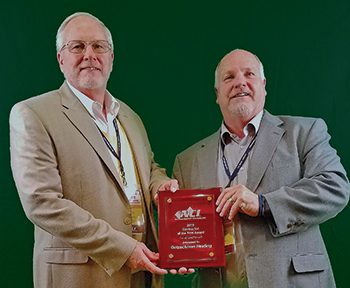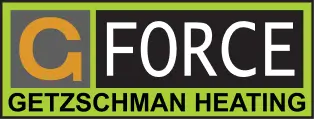





Training is Key to High-Performance Contracting

In the world of Performance-Based Contracting™, training is the cornerstone to success. Even if you are not following the high-performance path, training is the secret weapon to keep your company ahead of the competition so it can better serve customers. Period.
Here at Getzschman, we believe that a company without training is a company destined for failure. Trained employees are ambassadors for your company. The more experience they gain from training, the more valuable they are to your entire team.
Training on Purpose
The key to putting together a program that keeps your technical team on top of the best techniques, skills, and processes is one that is done on purpose. It requires thought, planning, and of course, enactment. That requires you to have money set aside to cover the costs, and in our case, to pay our techs while they are taking training classes.
Sometimes, membership organizations have rebate programs you can use to help pay for training. For us, our membership with National Comfort Institute (NCI) has a benefit where a percentage of the dollars you spend doing business with their vendor partners are rebated back to you in the form of what they call NCI Training Bucks (ncilink.com/bucks).
We do a great business and buy a lot of equipment and tools through NCI’s vendor partners. So, we earn a lot of NCI Bucks, which we use to help pay for nearly all the technical training for our team. We often use those bucks to bring trainers into our facility to train just our people. We believe that is the best way to train your entire team in the most correct methods for testing, measuring, and diagnosing HVAC system performance issues in the field.
We also do a lot of vendor training as needed for new products, new equipment, and new tools. That covers our outside training.
Like many HVAC companies, we do a lot of internal training led by the company owners as well as our service manager. Our human resources manager keeps tabs on who has done what, who needs what, and maintains all the training records. That way we have all the information necessary when applying for licenses and permits.
Our service department meets weekly and the installation crews meet daily to cover job and code issues as they come up.
Training is a Process
Training is a process that needs to be continuous for it to stick. It must be top-of-mind awareness. If you don’t regularly reinforce the importance of those processes to your people, the process will suffer. This applies not only to training itself but to other processes like sales. For example, if we aren’t always talking about maintenance agreements with our techs, they soon stop talking about them with customers. It’s out of sight, out of mind.
The same goes for training. If we aren’t continuously holding classes and teaching sessions, the lessons slip away, and techs tend to revert to old routines and habits. That is human nature.
So training is a process that must be maintained and nurtured continuously.
Furthermore, we use our training programs to determine a technician’s capabilities. This helps us note his or her strengths and weaknesses and enables us to plan for the training necessary for them to grow. It is up to them to want to ‘climb the ladder.’ We provide the ‘rungs.’ The truth is, the more advanced a tech becomes, the more valuable he or she becomes.
Training and the COVID Pandemic
We have made training a vital component of our culture. With the onslaught of the pandemic, however, our training regimen was seriously interrupted because the shutdowns and social distancing rules make it very difficult to get the teams together for training. In the spring, we missed many weeks of regular training and obviously missed NCI classes as well. We have noticed the impact of that on our operating efficiencies and in company growth.
For example, when we look at whether techs are conducting static pressure tests on every call, we are finding they are slipping because we stopped getting together to talk about it. After all, there weren’t any meetings and training sessions due to the COVID situation.
At Getzschman, internal virtual training has not been fully implemented. At the beginning of the shutdowns, we simply didn’t have the technology or skills to set these types of sessions up. Because there is no end to this pandemic in sight, we are seriously looking into a virtual approach today and suggest that if training is important to you, you need to develop virtual capabilities as well.
The good news is that NCI and other organizations have developed virtual training and that certainly helps. A lot. But we still believe that live, face-to-face meetings work better because it gives our guys the ability to interact with each other and the instructors more fully. Plus, there is the hands-on component which is so important when teaching technicians how to troubleshoot, take static pressure readings, install testing ports, and so on.
But for now, and in the near future, those types of meetings just aren’t going to happen as regularly.
Seven Key Tips to Successful Training Programs
People often say, ‘Training your people is just a waste of money because they will just leave you for a competitor anyway.’
We don’t agree.
You can spend money on training and while you have those employees, they will do the right things for you and your customers. We don’t have a lot of turnover, possibly BECAUSE of the training we provide.
Here are seven tips that we’ve found work in our company:
Commitment to Training and the Process – That commitment must extend beyond classes you hold internally to those you need that are held in other locations. This includes training provided by manufacturer reps and equipment suppliers, as well as third parties like trade associations and membership groups like NCI.
That commitment must include the willingness to attend such classes, even if they run much of the day. Many contractors won’t make that commitment because it’s inconvenient or takes the tech out of the field for a day.
But you have to look at this as an investment for the future of your company, as well as for the benefit of your customers and the techs themselves.
One of the biggest dangers is the rationalization that if something goes wrong, you can always go back and fix it. That is self-deception. Call-backs are expensive, eat into productivity and profits, and in the end, is still training, though in a more negative way. It’s still a learning experience.
Belong to a third-party training organization like NCI – This includes any national organization in this industry that can teach you better ways to operate your company, how to price your services, as well as manage people, time, and money. This helps to legitimize your efforts and reinforce it with your people and customers.
Redundancy – You can’t just train once. Repetition reinforces – This goes back to commitment. You must commit to repeat training because that reinforces it with the technicians. For example, we spend time on basic electrical diagrams for furnaces. This is the basis for nearly every furnace manufactured. This teaches the secrets of operation and what each component contributes to the overall comfort system.
The challenge comes from younger people who graduate from tech schools but don’t understand control voltage and low voltage. It’s rare to find someone with a strong control voltage background. So we teach it. Regularly.
A Maintenance Program is required for success – Getzschman has 3,000 maintenance agreements. This helps us not only through slow periods in terms of work, but also helps us manage our maintenance and service techs in terms of conducting performance testing and diagnostics on every call.
At the end of the day, training is one of the most valuable things we can do for our people. If someone DOES leave, they are going out into the industry knowing how to do things right, and that is good for the entire industry. So, it’s a win-win.
Process Back-Up – Back-end support systems are also key. We have a service coordinator who manages that process – from sales to record-keeping and more.
Many contracting companies use a top tech for this function. We are among them, though we hate to take a top tech out of the field.
However, there are many benefits to having someone as a resource for younger techs who may need help while in the field. This top tech is who they call when something is causing them issues.
The top tech service coordinator is also the guardian of the reminder – reminding the field teams what they must or must not do on every job. The service coordinator can and does lead in-house training on the four working systems we have in-house just for that purpose.
He teaches the techs how to troubleshoot, how to do CO (carbon monoxide) readings, take static pressure readings, and so on.
So we invested in taking one of our top techs out of the field and putting him in this position to be a resource and guide for all the other techs.
Warranties and Guarantees – Any business must have warranties and satisfaction guarantees. We don’t squabble over anything with our customers. If a customer disagrees or is unhappy about something we’ve done; we take care of them – no matter the cost.
Community Involvement – Though not directly tied into training, but it is tied into our culture and ethic. You need to give back. That involvement is important to your success.
At the end of the day, training is one of the most valuable things we can do for our people. If someone DOES leave, they are going out into the industry knowing how to do things right, and that is good for the entire industry. So, it’s a win-win.










